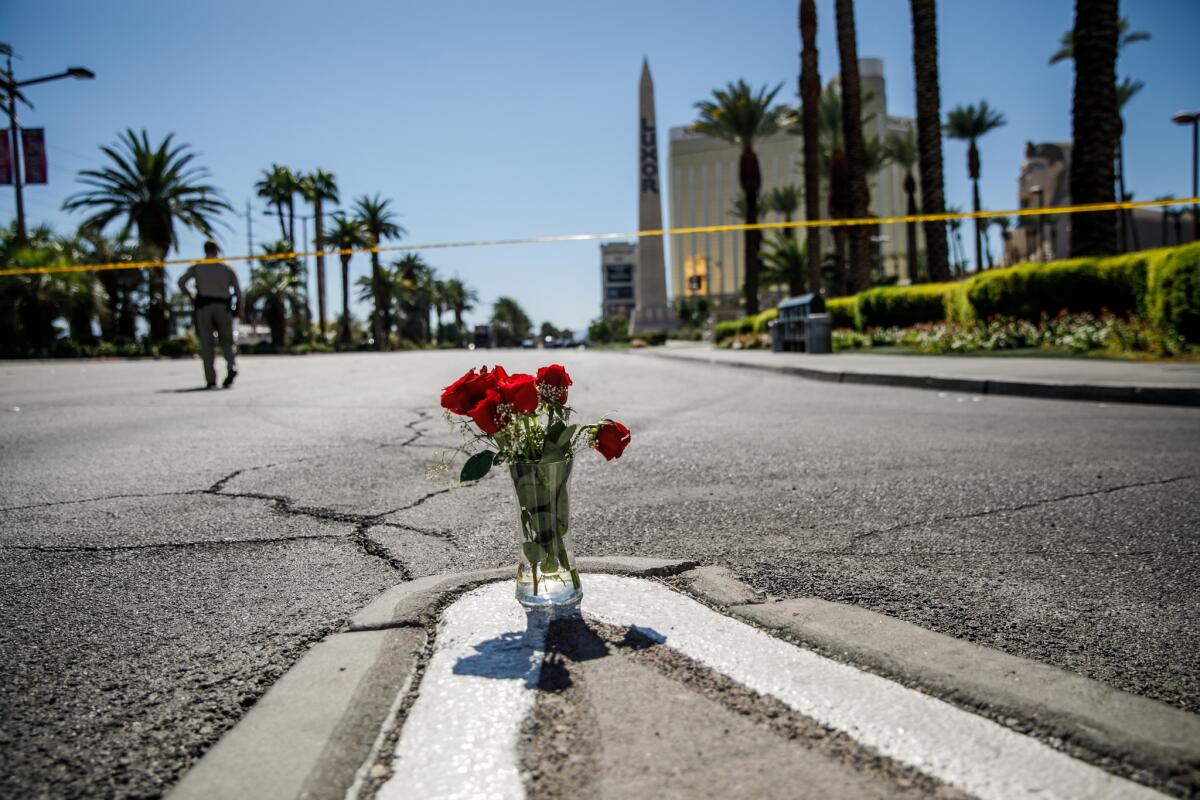Is that Las Vegas shooting charity legitimate? Here are some tips to help you find out

- Share via
In light of national public interest in helping the families of Las Vegas shooting victims, the California attorney general’s office on Wednesday issued a consumer alert outlining steps contributors should take to ensure their donations go to legitimate charities.
On Sunday night, Nevada resident Stephen Paddock used multiple guns to open fire on more than 22,000 concertgoers from the 32nd floor of the Mandalay Bay hotel before killing himself. More than 500 people were injured and 59 others were killed in the onslaught.
“California stands with our neighbors in Las Vegas. … Unfortunately, some people try to capitalize on our generosity in times of tragedy. These unscrupulous individuals set up fake charities purporting to help the victims of the tragedy only to line their own pockets,” state Atty. Gen. Xavier Becerra said in a statement.
Below are some tips for ensuring the charity you donate to is legitimate:
- Check its registration status. Charities in California must register with the Registry of Charitable Trusts here. The organization is required to file annual financial reports that can be found on the site as well.
- Give to organizations you trust.
- Ask questions of charity solicitors and don’t cave to telemarketer pressure. When speaking with a telemarketer, ask for the official name of the charity organization, if it’s registered in California, who will benefit from the donation, how much will go directly to the organization, how much is set aside for overhead and compensation and how much goes to the telemarketer. You have the right to say no and can always hang-up or walk away.
- Double-check the URL for the charity website you’re visiting. Many fraudulent sites set up pages with website addresses nearly identical to the organizations they are mimicking.
- Exercise caution with social media charities. Determine what percentage of the donation goes to the charity and what amount, if any, goes to the social media platform hosting the donation page.
- Do not give your social security number in response to a charitable donation or your credit card information to an organization you’re unfamiliar with. Learn the charity’s privacy policy before providing personal information because some groups sell donor lists to non-charitable organizations.
Complaints against charity scams can be filed with the California attorney general’s office at (800) 952-5225.
To read the article in Spanish, click here
For breaking California news, follow @JosephSerna on Twitter.
ALSO
As Las Vegas grieves, the slot machines keep beeping and the shows go on
Facebook and Google pledged to stop fake news. So why did they promote Las Vegas-shooting hoaxes?
More to Read
Sign up for Essential California
The most important California stories and recommendations in your inbox every morning.
You may occasionally receive promotional content from the Los Angeles Times.














